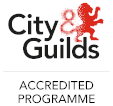Decontamination plays a big part in many roles across the healthcare sector. Below is a list of some of the roles that we help, have helped, or would benefit from our services such as our decontamination training and consultation.
This list is based upon a 'typical' hospital trust. However, clients from our other sectors will often have equivalents (or amalgamations).
Decontamination Unit Manager / SSD Manager
It is typically the responsibility of the decontamination unit manager or SSD (Sterile Services Department) managers to ensure that equipment and instruments are fit for use by the medical staff e.g. surgeons or other 'end users'. This type of role usually covers the organisation or provision of training to machine operators for simple checks and monitoring as well as conducting checks for, and arranging quarterly and annual validation tests by validation engineers.
Decontamination Lead
Usually a strategic role with responsibility for long-term decontamination strategy often across an entire hospital trust. May have an engineering or SSD background and be involved in ensuring new decontamination machines and methods are coordinated as part of the strategy and current decontamination guidelines.
The decontamination lead is responsible for all matters relating to decontamination within a trust or organisation and will interpret relevant national and international standards and provide expert advice to all other departments.
Designated Person
This is a person stipulated by the HTM (Health Technical Memorandum) as being responsible for decontamination / sterile services in terms of the relevant board-level committee(s). In terms of hospitals, this tends to be a site-wide position and this person is often a clinician such as a chief nurse, pharmacist, surgeon, doctor or microbiologist.
Team Leaders / Supervisors
In a hospital environment, these officers will have responsibility for ensuring frequent tasks are carried out. In terms of decontamination, this may cover tasks such as checking whether daily or weekly decontamination machine checks have been conducted. In larger organisations, these individuals will need to sign off other people's checks as a way of verifying operator monitoring has been conducted.
Engineers
Customer-side engineers (as opposed to our own validating and authorising engineers) are responsible for the maintenance and running of decontamination equipment. Often working within the Estates and Facilities department of a hospital, these individuals are sometimes trained to conduct validation tests too.
Operators
These are the people who use the decontamination equipment and can also perform frequent periodic testing (typically, daily and weekly checks). We provide various training courses to ensure that these users understand how to use the machines and conduct relevant checks/tests.
Authorised Person (Decontamination) - AP(D)
An AP(D) is responsible for a specific 'area' that contributes to the running of a hospital within government standards and guidelines. As well as decontamination, a hospital will have other authorised persons covering electrics, other utilities etc.
The AP(D) will report issues to the relevant parties and review ongoing monitoring. They also look for (and report upon) trends - particularly if these may cause potential issues e.g. increasing TVC counts over time that while within a tolerance, may require attention in future.
Executive / Director
Ultimately responsible for the roles described above, AVM has worked with a number of hospital trust boards to fulfil positions (assist with job descriptions for instance) and has also put in place AVM employees and contractors to fill short-term placements, including as decontamination leads.



